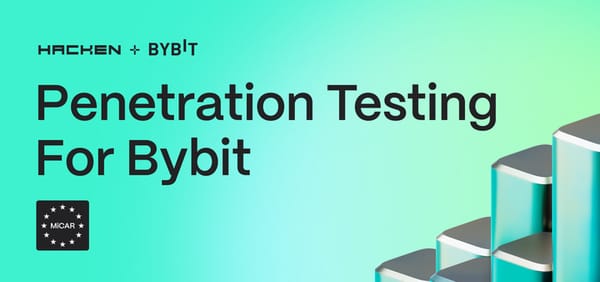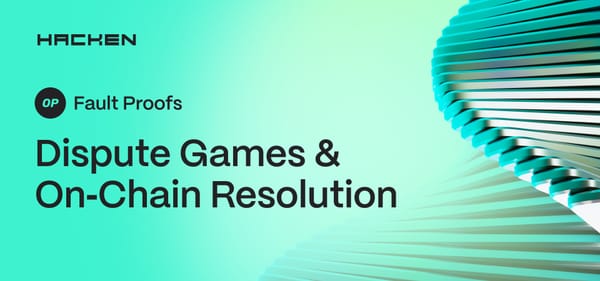Mastering Cosmos Security: Best Practices for Appchain Builders

Architecting sovereign, application-specific blockchains with the Cosmos SDK, CometBFT, and Inter-Blockchain Communication (IBC) protocol lets you ship scalable, interoperable networks tuned to any use-case or governance model. That same modular power also widens the attack surface – every layer introduces new states, message types, and trust assumptions that hungry attackers probe first.
The ecosystem fights back with security advisories and bug-bounty programs, yet critical bugs still pop up because complexity scales faster than audits. In this blog we’ll explore the recurring and often subtle patterns of vulnerabilities discovered in core components (SDK, CometBFT, IBC) and appchains, extract critical lessons from documented security incidents with links to relevant details, analyze the security disparities across the diverse ecosystem, and provide a highly detailed playbook of advanced defensive techniques.
Security Implications of Cosmos Design
The fundamental design choices of Cosmos – modularity, sovereignty, interoperability – create a unique security environment with inherent trade-offs that developers must internalize.
A. ABCI & The Determinism Mandate: A Precise Balancing Act
Strict determinism is a non-negotiable foundation for any blockchain consensus mechanism, and it is absolutely paramount in BFT systems like CometBFT: every correct validator must compute the identical state transition result given the identical input (Blockchain Architecture Basics). Any deviation leads to consensus failures. The Application Blockchain Interface (ABCI), especially with ABCI++, creates critical points where determinism must be rigorously enforced:
- ABCI++ (PrepareProposal/ProcessProposal): This enhanced interface (available since CometBFT v0.37/SDK v0.46) grants the application significant influence over block formation. PrepareProposal allows custom logic for transaction selection, ordering, and even inclusion/exclusion, running only on the proposer node, which means it can be non-deterministic. This freedom necessitates extreme caution at the boundary with ProcessProposal. The ProcessProposal phase, executed by all validators to verify the proposed block's validity, must be strictly deterministic.
- Preventing non-determinism: State derived or influenced during the potentially non-deterministic PrepareProposal phase must be meticulously validated or sanitized within ProcessProposal before affecting the deterministic state transition logic. Failure here introduces subtle consensus bugs, like those potentially arising if proposal logic depends on proposer-specific state not available to all validators. See issues like ASA-2024-002 where default handlers could produce invalid proposals.
- Coherence Requirement: ABCI++ also mandates proposal coherence: if one correct validator accepts a proposal, all others must too. This relies on the deterministic nature of ProcessProposal.
- BeginBlocker/EndBlocker Execution: Logic executed automatically at the beginning and end of each block must be strictly deterministic. These phases are common sources of non-determinism because they often involve complex calculations or state changes outside the standard transaction flow and may lack the rigorous gas metering applied to transactions. Developers must be exceedingly careful with any logic placed here.
- Vote Extensions: This feature adds another layer of complexity, with a potentially non-deterministic ExtendVote (proposer) and a mandatory deterministic VerifyVoteExtension (all validators). Vote extensions allow validators to inject data directly into the consensus process, bypassing the user transaction pool, enabling new functionalities such as oracle data feeds or off-chain computations. Secure handling requires robust validation within ProcessProposal or VerifyVoteExtension itself, while being careful not to cause liveness issues by rejecting blocks with invalid extensions too readily (CometBFT Vote Extension Security Advisories like ASA-2024-011).
- Query Determinism: Even seemingly read-only operations, if marked cosmos.query.v1.module_query_safe and influencing off-chain logic, must be deterministic. They also require gas metering to prevent DoS.
B. Object-Capability Model (Ocap): Power Through Controlled Interaction
The SDK employs an Object-Capability (Ocap) model via Keepers to manage inter-module interactions, promoting modularity and limiting potential blast radius (Ocap Principles, Benefits). However, its security relies heavily on developer discipline, as Go doesn't enforce it:
- Minimal Keeper Interfaces: Crucial for adhering to the Principle of Least Privilege. Expose only the methods required by consuming modules. Passing entire Keepers grants excessive capabilities.
- Reference vs. Copy Semantics: A subtle but vital point. Passing pointers (*MyStruct) grants the capability to modify the original data. Passing copies (MyStruct) restricts access to read-only, offering stronger encapsulation. This discipline is essential for all data passed across module boundaries.
- x/capability for Dynamic Resource Control: To enforce Ocap for resources that are dynamically named and allocated at runtime (e.g., IBC ports, channels), the SDK utilizes the x/capability module.
- What it does: It issues unique, unforgeable tokens ("capabilities") to modules. Think of these as specific "keys" that grant a module the exclusive right to interact with a particular named resource (like port-id-X). These capabilities are "scoped," meaning a key for Module A's resource cannot be used by Module B.
- Why it's Ocap: It ensures that only the module possessing the correct capability token can access or manipulate the associated resource, preventing unauthorized interactions.
- Mandatory Management Steps:
- Initialization: Securely distributing ScopedKeepers (the authority to mint/claim capabilities within a module's designated namespace) to relevant modules during the application's initial setup and then "sealing" the system to prevent new ScopedKeepers from being created at runtime.
- Claiming: A module uses its ScopedKeeper to formally request and be granted ownership of a new capability for a specific, named resource.
- Authentication (Usage): Before an action is performed on a resource, the interacting module (e.g., x/ibc) authenticates the calling module's presented capability against its claimed scope, ensuring rightful access. This rigorous management is mandatory for secure interaction with dynamic systems like IBC, ensuring, for example, that only the module which originally bound an IBC port can send or receive packets on it.
Meticulous code review focusing on interface design, pointer usage, and app.go wiring is necessary to ensure Ocap provides meaningful security benefits.
C. AnteHandler Chain: The First Line of Defense (and Its Weaknesses)
AnteHandlers provide essential pre-execution checks. Flaws can undermine chain security:
- Nested Message Vulnerability: A significant weakness where AnteHandlers only check the outermost transaction message. x/authz MsgExec and x/gov Proposal allow nesting arbitrary messages, potentially bypassing gas, fee, signature, or other checks if the AnteHandler doesn't recursively unpack and validate (Detailed Bypass Analysis & Ethermint Example). Mitigations involve recursive handlers or moving critical checks to the MsgServer.
- Custom Handler Pitfalls: Custom AnteHandlers must correctly handle all possible message structures and accurately calculate resource usage (gas, fees).
- Simulation Discrepancies: Logic differences between simulation and execution can mask vulnerabilities or break client tooling (Simulation Security Notes). Heavy checks should not be skipped in simulation.
- Evolving Logic & Dependencies: Changes in core AnteHandler logic (e.g., ADR-070) can impact security assumptions.
D. Ecosystem Interdependencies and Inherited Risk:
The modular design means appchains inherit risks from shared components (SDK, CometBFT, IBC-Go, CosmWasm VM). A vulnerability in a widely used standard module (e.g., x/authz, x/group) or core protocol (IBC Huckleberry, CometBFT Sync Issues) can simultaneously affect numerous independent chains. This necessitates diligent tracking of dependencies and rapid patching when core vulnerabilities are disclosed (Dependency Management Importance). Chains like Cheqd explicitly list past core vulnerabilities they track in their security policy.
Deep Dive into Cosmos Vulnerabilities: Patterns and Examples
Analyzing historical vulnerabilities reveals recurring themes across the stack.
A. Non-Determinism: The Consensus Killer
Determinism is a critical requirement for distributed consensus systems like Cosmos SDK-based blockchains. It dictates that given an identical initial state and sequence of transactions, every full node must compute the exact same resulting state.
Non-determinism leads to severe consequences:
- Consensus Failure: Validators compute different state roots, halting chain progression.
- Chain Forks: Network segments diverge, creating conflicting transaction histories.
- Unfair Slashing: Honest validators with deviating states may be incorrectly penalized.
The "state machine," encompassing all code that reads from or writes to the blockchain's persistent state or influences consensus-critical computations (e.g., message handlers, BeginBlocker/EndBlocker logic, hooks), must be strictly deterministic. Only non-deterministic behavior affecting the agreed-upon state or the blockchain's deterministic response causes consensus issues.
Prime sources include:
- Map Iteration: Unsorted Go map iteration (Map Iteration Issue).Fix: Sort keys first.
- Floating Point: Platform variations.Fix: Use sdk.Dec (Avoid Floats).
- Time: time.Now() vs ctx.BlockTime(). Lesson: The Jackfruit x/authz bug.Fix: Always use ctx.BlockTime().
- Randomness: math/rand.Fix: Use deterministic sources if needed.
- Concurrency: Goroutine scheduling.Fix: Avoid in state logic unless provably deterministic.
- External API Calls: Forbidden.
- Platform-Dependent Types: Variable-size int.Fix: Use fixed-size types (int64).
- unsafe Packages: Go's unsafe package poses a significant threat to determinism in systems like blockchains, as it allows bypassing type and memory safety, leading to platform-dependent behavior, memory corruption, and unpredictable outcomes. Its use within the state machine scope should be strictly avoided. If absolutely necessary, any operations involving unsafe must undergo extreme scrutiny and rigorous, multi-platform testing to guarantee deterministic execution, a caution echoed by multiple analyses due to the magnified risk of subtle, hard-to-detect bugs.
- Serialization: Inconsistent encoding/decoding (IBC Ack JSON issue ASA-2025-004).Fix: Use deterministic libraries/processes.
B. Panic Risks: The Chain Halter
In Go, a panic disrupts normal control flow, executing deferred functions before terminating the goroutine if unhandled. An unhandled panic propagates up the call stack, potentially crashing the program.
Within Cosmos SDK blockchains, unhandled panics in critical sections like module-executed BeginBlocker and EndBlocker handlers are catastrophic. Although BaseApp recovers panics during transaction processing (DeliverTx), PrepareProposal, and ProcessProposal, those in BeginBlocker/EndBlocker can crash validator nodes. Due to deterministic execution, this leads to a chain halt as validators cannot agree on or produce new blocks.
Even if recoverable, such panics represent a significant Denial of Service (DoS) vector, incurring social coordination costs, reputational damage, and economic losses from downtime.
Common triggers:
- Integer Overflow/Underflow: Default panic in sdk.Int/sdk.Dec See ASA-2024-010.Fix: defer-recover is essential.
- Division by Zero.Fix: Validate divisors or recover.
- Standard Go Panics: Nil pointers, index errors (Common Go Issues).Fix: Checks + recovery.
- Unhandled Errors: Unhandled Go runtime errors (e.g., nil pointer dereferences, index out-of-bounds) automatically trigger panics. Separately, developers explicitly calling panic() on recoverable errors also bypasses standard error handling. Both types of unhandled panics can halt a blockchain if not recovered. Prioritize diligent error checking and returning error values. For Cosmos SDK development, use the cosmossdk.io/errors package for structured errors, reserving explicit panic() calls strictly for genuinely unrecoverable, critical system states.
- SendCoins Fragility: Batch transfer panics if any sub-transfer fails (e.g., via hooks). Lesson: Apparent atomicity can mask fragility. Fix: Use individual SendCoin in sensitive contexts within defer-recover (SendCoins Risk).
- External Component Panics: Must be caught (CosmWasm VM: CWA-2024-008; CometBFT logic: ASA-2024-011).
C. Gas Metering Exploits: DoS and Resource Abuse
In the Cosmos SDK, "gas" measures computational resources consumed by state-altering operations. Every operation (state read/write, cryptographic computations, logic execution) consumes gas, with users paying fees proportional to their transactions' total gas.
Flaws in gas mechanisms enable attacks:
- Unmetered Computation: Logic outside transaction gas scope (BeginBlocker/EndBlocker/hooks) allows infinite loops or extreme computation.Fix: Wrap with gas-limited Context as well as limit the long nested iterations, and limit the complexity to a known limit.
- Mispriced State Operations: Underpriced writes enable state bloat.Fix: Price accurately (GasConfig).
- Fee Market Issues: A poorly designed or configured fee market can fail to prevent spam or adapt to network congestion. Issues include the allowance of zero-fee transactions or the lack of dynamic fee adjustments, which can make it cheap for attackers to flood the network with low-value transactions, leading to mempool congestion and delayed processing of legitimate transactions.Fix: Implement robust fee markets, prevent every mechanism that allows spamming the chain in conditions where the gas is cheap.
- Gas Calculation/Reporting Bypass: AnteHandler bypasses via nested messages (Ethermint Bypass),(CWA-2024-008), VM metering flaws (CWA-2024-007, CWA-2024-004).Fix: Recursive/MsgServer checks; VM testing/audits.
- CheckTx Resource Exhaustion: Expensive checks allow DoS.Fix: Keep CheckTx light.
- Query DoS: Unmetered expensive queries.Fix: Meter queries.
D. State Corruption & Integrity Issues:
The fundamental purpose of a blockchain is to serve as a secure, consistent, and immutable distributed ledger. The "state" of the blockchain at any given block height represents the canonical record of all accounts, balances, contract storage, and other module-specific data. Maintaining the integrity and validity of this state is paramount. State corruption, where the on-chain data becomes invalid, inconsistent, or deviates from the results of deterministic transaction execution, can undermine the entire system. Such corruption can lead to the processing of invalid transactions, enable economic exploits (e.g., theft of funds, creation of unbacked assets), cause consensus failures if nodes disagree on the correct state, or necessitate complex and contentious chain rollbacks or hard forks to repair.
Subtle bugs leading to invalid state:
- Key Malleability & Collisions: The Cosmos SDK, like many blockchain frameworks, relies on a key-value (KV) store for persistent state. The design of the keys used to store and retrieve data is critical. Poorly designed keys can be "malleable," meaning an attacker might be able to influence parts of a key's structure. This can lead to several issues, including overwrites or bad iterations or accessing wrong data. (Overlap Risk).Fix: Secure key design, prefix management.
- Module Logic Flaws: Incorrect validation or state transitions in complex modules (Barberry vesting bug, ASA-2024-003).Fix: Rigorous validation, testing.
- IBC State Inconsistencies: Mishandling packet lifecycles (Reentrancy Example, Event Mismatch Example).Fix: Strict spec adherence, CEI pattern.
- Bookkeeping Mismatches: Discrepancies can arise in how different modules or system components track shared or related state, particularly token balances or supply information. If one part of the system updates a balance without the canonical owner module being aware or involved, inconsistencies emerge. Lesson from Evmos: Don't allow direct sends to module accounts bypassing internal logic.Fix: Use canonical sources of truth, enforce invariants, restrict direct access to module accounts, and implement access control mechanisms to prevent unauthorized state changes.
- Infrastructure Issues: Underlying data corruption (OpSec Guide).Fix: Robust infra, monitoring.
E. IBC Vulnerabilities: The Interchain Minefield
The Inter-Blockchain Communication (IBC) protocol enables interoperability between heterogeneous sovereign blockchains, facilitating trust-minimized transfer of tokens and arbitrary data. It relies on on-chain light clients to verify counterparty chain state transition proofs and off-chain relayers to transmit data packets. Despite minimizing trust, IBC's complexity in coordinating state across distinct ledgers—involving intricate handshakes, packet lifecycle management, and proof verification presents a significant surface for security vulnerabilities that require correct implementation by chains and middleware.
Requires extreme diligence (IBC Attack Surface):
- Packet Forgery/Manipulation: Packets transferred over IBC rely on cryptographic proofs to verify authenticity and ordering. Vulnerabilities arise if the proof verification logic is flawed or incomplete, such as via proof flaws (Dragonberry ICS-23 flaw). This flaw exposed weaknesses in proof handling that allowed attackers to forge or manipulate packets undetected. Similarly, missing application-level validation, as seen in the Comdex oracle attack can let malicious packets pass through, leading to incorrect or malicious state updates.
- Reentrancy: IBC uses callbacks and timeout mechanisms to handle packet acknowledgments and failures. Improperly designed callbacks or timeout handlers can introduce reentrancy vulnerabilities via callbacks/timeouts (IBC timeout reentrancy analysis), where malicious actors exploit nested calls to manipulate state inconsistently or trigger unintended side effects. This analysis highlights the risk of reentrant logic allowing state corruption or bypassing intended checks.
- State/Event Mismatches: IBC communication can suffer from state or event mismatches upon errors (Huckleberry event analysis). Such mismatches occur when errors cause the state or emitted events on one chain to become inconsistent with the other, leading to downstream modules or clients acting on incorrect assumptions. This inconsistency can disrupt cross-chain communication or cause misbehavior in dependent applications.
- Channel/Connection Issues: IBC connections rely on handshakes, version negotiations, and capabilities (x/capability), as well as upgrades (Channel Upgrades). Failures or inconsistencies in any of these processes can lead to unauthorized channel hijacking, communication breakdowns, or race conditions during upgrades, jeopardizing the security and stability of cross-chain interactions.
- Relayer/Network Issues: Relayers serve as intermediaries transporting IBC packets but can introduce risks such as malice, censorship, delays, or network partitions. These issues disrupt timely packet delivery or selectively block communication, threatening the reliability and fairness of interchain operations.
- Integration Logic Failures: Applications failing to validate the source channel, port, or sender of incoming packets can lead to security breaches (Comdex Analysis). Attackers may spoof trusted sources or bypass critical business logic. The key lesson is that IBC channels are untrusted paths by default, requiring strict validation and authentication within the application.
- Data Handling: IBC packets require deterministic serialization and deserialization. Non-deterministic deserialization issues such as those documented in (ASA-2025-004) can cause inconsistent data interpretation across chains, potentially leading to logic errors, state corruption, or security vulnerabilities.
F. Module-Specific & Integration Risks:
Critical Cosmos SDK modules, including authorization (x/authz), governance (x/gov), staking (x/staking, LSM), bank (x/bank), and CosmWasm integration, are susceptible to significant security vulnerabilities. Flaws typically manifest as permissioning errors leading to unauthorized actions or privilege escalation, non-deterministic behavior (e.g., using local node time instead of block time) resulting in consensus failures and chain halts, and logic errors within core module operations (like proposal execution in x/gov, slashing in x/staking, or token transfers in x/bank) that can cause economic damage or unintended state transitions.
CosmWasm integration further introduces risks associated with smart contract vulnerabilities, gas metering discrepancies between the Wasm VM and the SDK, unhandled panics from Wasm execution, and reentrancy issues, particularly through hooks interacting with other modules like IBC.
Here are a few examples:
- Authorization (x/authz, x/group): Core permissioning flaws (Elderflower context, Jackfruit details, ISA-2025-002/003 advisories). Nested message bypasses (Antehandler Bypass).
- Governance (x/gov): Execution bypass (Gov Risks), logic flaws, socio-economic attacks.
- Staking (x/staking): Slashing complexity, LSM challenges (LSM Context), state bugs (Key Overlap), historical bugs (May 2019 Advisory).
- Bank (x/bank): Module send restrictions, supply controls, and SendCoins risks, with insights from the Evmos case. Supports formal verification readiness.
- CosmWasm Integration: Smart contract risks + SDK interactions. Gas issues, standard bugs, IBC complexity, reentrancy via modules, dependencies (Wasm Security Overview, Wasm Gas/Panic Issues).
Learning from Major Incidents
Analyzing past security incidents provides concrete, often hard-won, lessons:
- Dragonberry/Elderflower (Oct 2022): Revealed critical flaws in core IBC specs (ICS-23 proofs) and SDK module integration (x/authz). IBC protocol relies on ICS-23 Merkle proofs to verify state on counterparty chains.1 Dragonberry was a subtle flaw not in the implementation of these proofs, but in the ICS-23 specification itself, specifically concerning absence proofs (proofs that a key does not exist in a state tree). The specification lacked sufficient constraints on the structure of these proofs. This ambiguity allowed an attacker to construct a valid-looking proof that would incorrectly "prove" the absence of a packet commitment or acknowledgement on a counterparty chain, even if it did exist.Lesson: Core protocols and their interactions require deep scrutiny; coordinated disclosure is vital for ecosystem-wide vulnerabilities. The official retrospective details the complexity and response.
- Jackfruit (Oct 2021): Showed how easily non-determinism (local time vs. block time) can compromise consensus. The vulnerability was within the x/authz module, specifically in the Grant's ValidateBasic() method when checking for grant expiration. The code incorrectly used time.Now() (the local system time of the validating node) to compare against the grant's Expiration timestamp (which is stored on-chain and is part of the consensus state).Lesson: Determinism is absolute; use consensus state only. A simple error with profound consequences (official retrospective).
- Huckleberry (May 2023): Exposed the danger of relying solely on emitted events (incorrectly emitted on IBC errors). The bug resided in the ibc-go module's handling of events within the OnRecvPacket callback, which is executed when an IBC application module processes an incoming packet. The Cosmos SDK utilizes a CacheContext for operations such as message handling. If an operation succeeds, changes made in the CacheContext (both state modifications and emitted events) are committed to the parent context. If it fails, the CacheContext is discarded, effectively rolling back state changes. Lesson: Off-chain systems MUST verify on-chain state. Event handling requires care around failures (official advisory, technical analysis).
- Comdex Oracle Exploit (Apr 2023): Classic application-level IBC misuse; failure to validate packet source allowed price manipulation. Comdex had an oracle module that relied on IBC to receive price data from Band Protocol. When Comdex's application module received an IBC packet purportedly containing oracle price data (OracleResponsePacketData), it primarily checked the RequestID within the packet data to see if it matched an outstanding price request. The critical flaw was that the Comdex application did not sufficiently verify that the IBC packet originated from the legitimate Band Protocol channel and port that Comdex had established for this oracle interaction. Lesson: Applications MUST authenticate critical IBC data origins; treat IBC as untrusted input (exploit analysis). The Harbor Protocol exploit later reportedly involved Comdex, further highlighting DeFi interaction risks.
- Stride Airdrop Exploit (Pre-Fix): Similar failure to validate IBC source channel allowed theft in Comdex, Stride, a liquid staking provider, planned an airdrop for users on other Cosmos chains. The mechanism likely involved users sending an IBC transaction from a source chain (e.g., Cosmos Hub) to Stride to prove their address ownership and eligibility for the STRD token airdrop. But this was an insufficient validation of the source IBC channel for these airdrop claim/verification packets. Lesson: Reiteration of the Comdex lesson – authenticate IBC origins! This pattern highlights a common blind spot.
- Other Ecosystem Events: Incidents like the Juno network halt and subsequent value-moving typo, or the Cosmos Hub (Gaia) chain halt post-v17 upgrade due to an Interchain Security bug, demonstrate that operational issues, governance actions, and even simple mistakes can have significant security or availability implications beyond targeted exploits. The Noble CCTP mint bug, found via bounty, shows the value of incentivized testing.
- General Incidents: Major exchange or bridge hacks (like the Wormhole bridge hack, though the chain itself aims for high security) demonstrate contagion risk. Software supply chain attacks represent an evolving threat vector targeting build processes. Audits/bounties are crucial but not infallible.
The Security Disparity: Large vs. Small Chains
The Cosmos ecosystem exhibits a clear "security gradient." While all chains share foundational risks, smaller or niche chains often face amplified challenges:
- Resource Constraints & Information Asymmetry: Limited funding directly hinders the ability to commission frequent, deep security audits, especially for custom modules. Publicly available security information (audits, detailed policies, active bounties) is often scarce compared to larger projects like Gaia (Cosmos Hub), Archway, or Celestia which often have documented policies and bounty programs. This makes external risk assessment difficult for chains where such information is lacking.
- Validator Set Security & Centralization: Lower market capitalization often means fewer validators, potentially increasing centralization and lowering the practical cost of network attacks. Validator quality and operational security might also vary based on incentives.
- Bug Bounty Effectiveness: Funding globally competitive bug bounty rewards is a major challenge for smaller projects. Lower payouts or less visible programs attract fewer top-tier security researchers, reducing the likelihood of vulnerabilities being found and responsibly disclosed (Bounty Incentive Debate). Compare potential payouts on major programs (like Axelar, Wormchain, Hyperlane) versus smaller chains.
- Patching Cadence & Dependency Risk: Smaller teams may have slower processes for testing and deploying critical security patches for core dependencies (like Fetch.ai addressing ASA-2025-004 during an upgrade), extending their exposure window compared to better-resourced projects.
- Custom Module Scrutiny: Unique modules specific to smaller chains inherently receive less widespread review than standard SDK modules, potentially hiding undiscovered bugs specific to that chain (Custom Code Scrutiny).
This disparity means users and developers must perform heightened due diligence when interacting with less prominent chains.
Best Practices for Appchain Builders
Building resilient appchains requires integrating advanced security practices throughout the entire lifecycle:
A. Rigorous Testing Strategies:
- Multi-Layered Testing: Combine comprehensive Unit Testing (functions), Integration Testing (module interactions, Ocap boundaries), Simulation Testing (simapp for state machine logic, invariants, randomized inputs, upgrade path testing), Smart Fuzzing (low-level parsing, encoding, crypto), and System Testing (end-to-end workflows, validator behavior, real-world scenarios).
- Invariant Checking: Define critical state invariants (supply, balances, pool states) and check them continuously and aggressively during testing, especially simulation. Fail fast on violations (Invariant Importance).
- Adversarial & Scenario Testing: Explicitly test against known Cosmos vulnerability patterns (non-determinism triggers, DoS vectors, IBC source spoofing, reentrancy). Test failure recovery paths and network upgrade handlers meticulously (Upgrade Testing).
B. Secure State Management Patterns:
- Key Design: Implement non-malleable, unique keys (robust prefixes, separators, fixed-length encodings like big-endian). Prevent collisions (Key Best Practices).
- ORM (x/orm): Evaluate for type-safe, structured state management, potentially reducing errors. Follow database normalization if used (ORM Docs).
- State Growth Management: Implement state pruning or other strategies early. Monitor state size; unbounded growth impacts availability (State Management Guide).
C. Disciplined Capability Usage (Ocap):
- Least Privilege Keepers: Design minimal interfaces exposing only needed functionality. Avoid passing full Keepers.
- Prefer Pass-by-Copy: Use pass-by-copy for inter-module data transfer where possible to prevent unintended modifications and enforce encapsulation (Ocap Guide).
- Audit Wiring: Meticulously review app.go wiring. Verify x/capability usage for IBC.
D. Meticulous Gas Handling in Complex Scenarios:
- Meter Unmetered Contexts: Apply separate gas limits (ctx.WithGasMeter) to potentially unbounded operations in BeginBlock/EndBlock/hooks. Respect BlockGasMeter (Metering Guide).
- Input Validation for Gas: Validate inputs to prevent resource exhaustion via malicious triggers. Ensure loops/recursion terminate or have constant bounds.
- Accurate Pricing: Understand GasConfig; price custom state operations realistically based on resource usage.
- AnteHandler Correctness: Ensure AnteHandler gas logic is sound, handles nesting (Nested Message Bypass), and matches execution.
- Understand VM Gas: Account for mechanics/bugs of integrated VMs (CosmWasm, EVM) and their interface with SDK gas.
- Query Metering: Meter all potentially expensive queries.
E. Secure IBC Integration Patterns:
- Authenticate Everything: Use x/capability. Critically, validate the source channel/port (and potentially sender) for all incoming IBC packets triggering sensitive actions (IBC Security Best Practices ). Do not implicitly trust IBC data.
- Adhere to Packet Lifecycle & CEI: Implement callbacks deterministically/correctly. Strictly follow the Check-Effects-Interactions pattern (finish internal state changes before external calls) to prevent reentrancy (Reentrancy Prevention). Handle errors meticulously to avoid state/event mismatches (Huckleberry Context).
- Manage Channel Lifecycle: Implement handshake callbacks correctly; handle version negotiation, upgrades, flushing logic precisely.
- Consider External Factors: Threat model must include relayer behavior and counterparty chain security/liveness.
F. Robust Operational Security (OpSec):
- Comprehensive Monitoring: Deep monitoring (node health, network, consensus, resources, application metrics) with effective alerting (Monitoring Guide). Log analysis.
- Secure Upgrade Process: Use documented, tested procedures. Coordinate. Use cosmovisor safely (verify binaries, secure permissions). Robust rollback plans/backups.
- Maintain Incident Response Plan (IRP): Develop, document, and practice a formal IRP.
- Harden Infrastructure: Secure keys (HSMs), use sentry nodes, firewalls, maintain patches, DDoS protection (Node Security Basics).
- Dependency Management: Rigorous process for tracking, vetting, and rapidly applying security updates for all dependencies (core stack, libraries, build tools). Mitigate supply chain risks.
Ecosystem Scrutiny: Audits, Bounties, and Disclosure
Leveraging ecosystem defenses effectively requires understanding their nuances:
- Security Audits: Provide valuable independent review by specialized firms, with significant activity seen across major Cosmos chains like Axelar, Archway, Kava, Mars, Neutron, Wormchain etc. (though specific auditor names are omitted here). However, audits remain point-in-time snapshots limited by scope and cannot guarantee bug absence. Use findings to improve, consider publishing reports for transparency, but view them as one component of ongoing security assurance.
- Bug Bounty Programs: Offer continuous, incentivized discovery. The core Interchain Stack program provides a central reporting point for SDK/CometBFT/IBC/Wasm. Numerous appchains (e.g., Axelar, Celestia, Cronos, Crypto.org Chain, dYdX, Ethos Reserve, Hyperlane, Mars, Neutron, Persistence(pSTAKE), Sei, Sifchain, Wormchain) run dedicated programs, often on established platforms or directly, with rewards potentially reaching multi-million dollar levels for critical finds. Note trends like increasing KYC requirements and reward lock-ups observed in some programs. An active, well-managed program signals security commitment.
- Coordinated Vulnerability Disclosure (CVD): Formal policies, often via SECURITY.md files (seen for Archway, Celestia, Cheqd, Gaia, Orai Chain etc.), are standard practice for mature projects. Effective CVD relies on private reporting, timely remediation, and coordinated patching across the ecosystem, which can be challenging but is vital (CVD Coordination Example).
Conclusion
Mastering Cosmos security means living in continuous vigilance. Guard your chain with the playbook you’ve just seen: lock in determinism, harden every IBC path, nail Ocap discipline, meter gas everywhere, layer tests, tighten ops, and auto-update dependencies. Audits and bug bounties help, but the buck still stops with you – the app-chain’s builders and operators. Own that duty, keep learning, and ship to the highest bar. Do it right, and your apps stay resilient, trusted, and ready to tap the full power of the Interchain.
Useful links:
- https://docs.cometbft.com/v0.38/introduction/
- https://docs.cosmos.network/v0.45/core/
- https://github.com/cosmos/cosmos-sdk/security
- https://docs.cosmos.network/main/learn/intro/sdk-app-architecture
- https://www.zellic.io/blog/exploring-cosmos-a-security-primer
- https://jumpcrypto.com/writing/bypassing-ethermint-ante-handlers/
- https://www.halborn.com/blog/post/top-5-security-vulnerabilities-cosmos-developers-need-to-watch-out-for
- https://forum.cosmos.network/t/cosmos-sdk-ibc-vulnerability-retrospective-security-advisories-dragonberry-and-elderflower-october-2022/8735
- https://hackerone.com/cosmos
- https://medium.com/@jorgecastillot2017/cosmos-unmasked-a-security-guide-to-review-cosmos-application-cfc9efbdd205
- https://www.cyberark.com/resources/threat-research-blog/the-hackers-guide-to-the-cosmos-sdk-stealing-millions-from-the-blockchain
- https://jumpcrypto.com/writing/bypassing-ethermint-ante-handlers/
- https://forum.cosmos.network/t/ibc-security-advisory-huckleberry/10731



